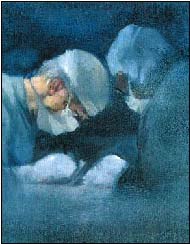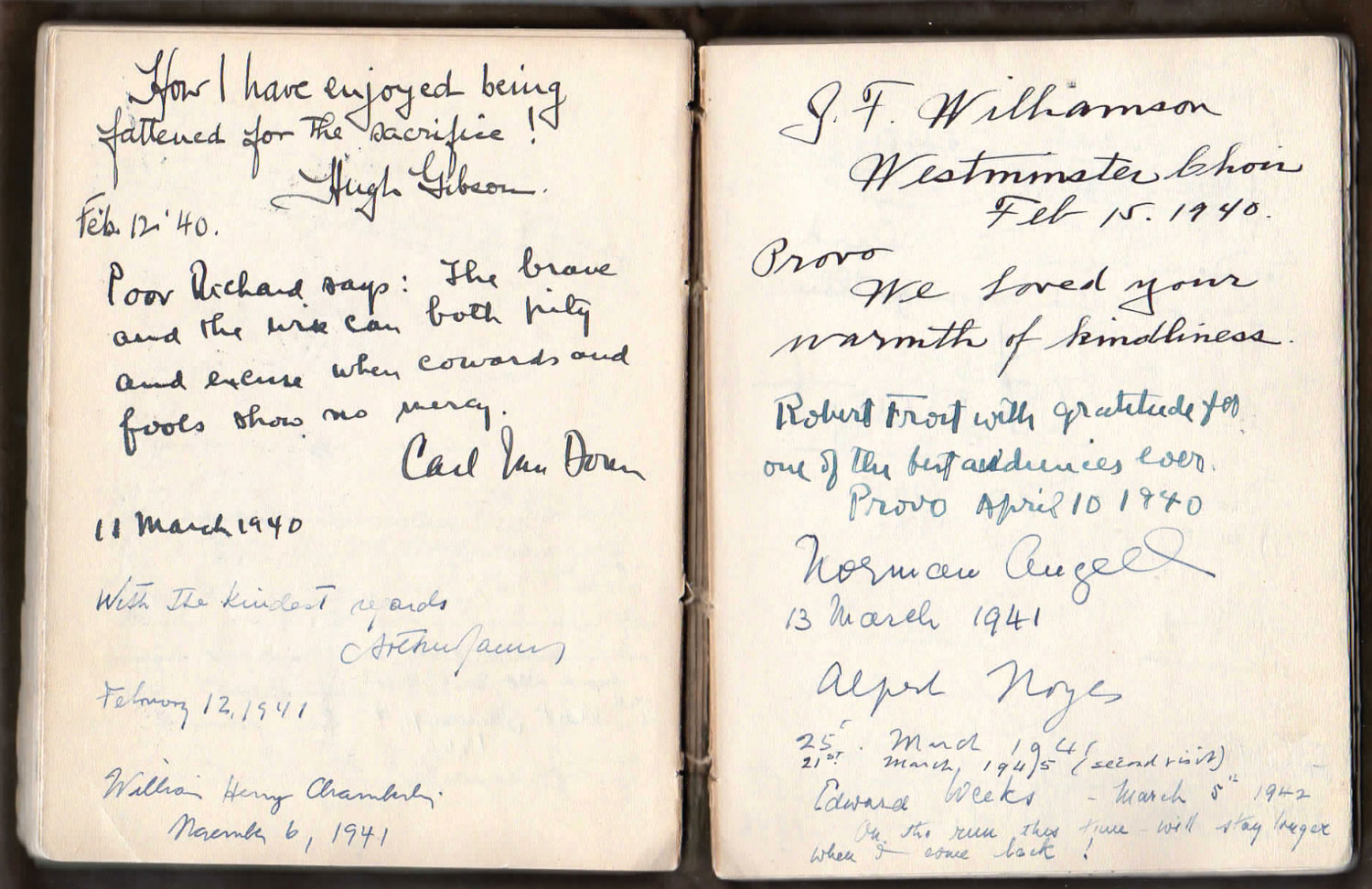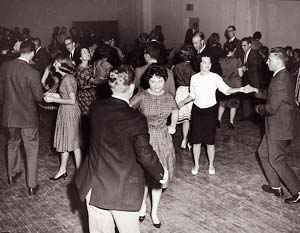The temples of Aesculapius, named after the legendary Greek physician Asclepius, served as sanctuaries of healing. In 1982 a group of Latter-day Saint physicians adopted the name to represent the highest ideals and ethics of health care. Today Collegium Aesculapium continues to welcome physicians, podiatrists, pharmacists, and dentists as active members. Other health professionals and pre-med students who approach medical service with high ethical and moral values are invited to join as associate members.
Sponsored by the BYU Alumni Association and the College of Biology and Agriculture, the 400-member foundation primarily serves (1) physicians and their families, (2) students of medicine, and (3) the world community.
 Two conferences are held each year—an annual spring conference in Utah and a semiannual fall conference held elsewhere in the United States—providing a forum for medical expertise as well as social and spiritual exchange. “My husband has always accompanied me and enjoys the meetings, even though he is not in the health-care field,” says Dr. Marian Brubaker, Collegium’s current and first woman president. “While some of our topics may be strictly academic, since we do offer CME (continuing medical education) credit, there are always intertwined feelings reflecting gospel teachings.”
Two conferences are held each year—an annual spring conference in Utah and a semiannual fall conference held elsewhere in the United States—providing a forum for medical expertise as well as social and spiritual exchange. “My husband has always accompanied me and enjoys the meetings, even though he is not in the health-care field,” says Dr. Marian Brubaker, Collegium’s current and first woman president. “While some of our topics may be strictly academic, since we do offer CME (continuing medical education) credit, there are always intertwined feelings reflecting gospel teachings.”
In place of the fall conference this year, a Church history tour is planned for Collegium members and their families July 11–20. The 1997 annual conference will be held April 3–4 at the Provo Park Hotel. Regional firesides are also slated for the future.
The Journal of Collegium Aesculapium publishes many of the papers presented at conference seminars. While some articles discuss thought provoking ethical and medical topics, others center on gospel topics or relate service experiences within Church missions. A bimonthly newsletter is also published by the organization.
Humanitarian service is the heart of Collegium, whose members often work closely with other established organizations. The Annual Day of Service on April 6, when physicians donate all or part of their day’s earnings, raises funds for a variety of Collegium projects. The Adopt-A Saint Program through the LDS Church Educational System helps returned missionaries in Third-World countries continue or start their training in health-care fields. Other projects include providing medical equipment for worthy programs and building medical libraries in developing nations.
The missions of the Church provide a major opportunity for medical service, whether to missionaries, Church members, or others in need. Collegium has placed Merck Manuals (medical encyclopedias) in high-risk missions and, upon request, medical kits for health missionary specialists.
The Church’s establishment of the Missionary Medical Advisory Committee in 1988 drew Collegium members into a campaign to improve the health of missionaries. The committee has evaluated hospital and missionary living quarters in Third-World countries, meeting with local doctors and mission presidents to promote better sanitation practices and proper treatment of disease. “We are trying to identify and prevent the major illnesses in the missions,” says Dr. Quinton Harris, chair of the committee and former Collegium board member. One mission health project beginning in December 1993, resulted in water purification systems installed in virtually every missionary apartment in Russia and Eastern Europe. Not only the health but also the work of the missionaries has greatly improved.
Through callings as Church health missionaries, many Collegium members and their spouses serve directly within the missions as doctors or nurses, often setting up their own clinical facilities. This hands-on service gives those who have retired from medical practice an opportunity to improve worldwide health conditions.
Through other humanitarian agencies, many Collegium members with active practices volunteer for two to four weeks of medical service in foreign countries and U.S. inner cities.
Collegium Aesculapium reaches out to serve a global audience and membership. “We now have a World Wide Web site—https://www.collegiumaesculapium.org/,” notes Dr. Brubaker. “I can see unlimited possibilities with our Internet connections.”
Besides expanding its communication and areas of service, Collegium hopes to increase its membership. Says Brubaker, “We see an increasing number of women in medical schools. It is my hope that we can attract more women into our membership. We need more female mentors for our young women in the medical field.”
Membership fees are $125 for full members (MD, DO, DDS, DPM, PharmD); $75 for associate members (RN, nurse practitioner, physician assistant, physical therapist, occupational therapist); $35 for health-care professionals in training; and $10 for students in health-care professions.









